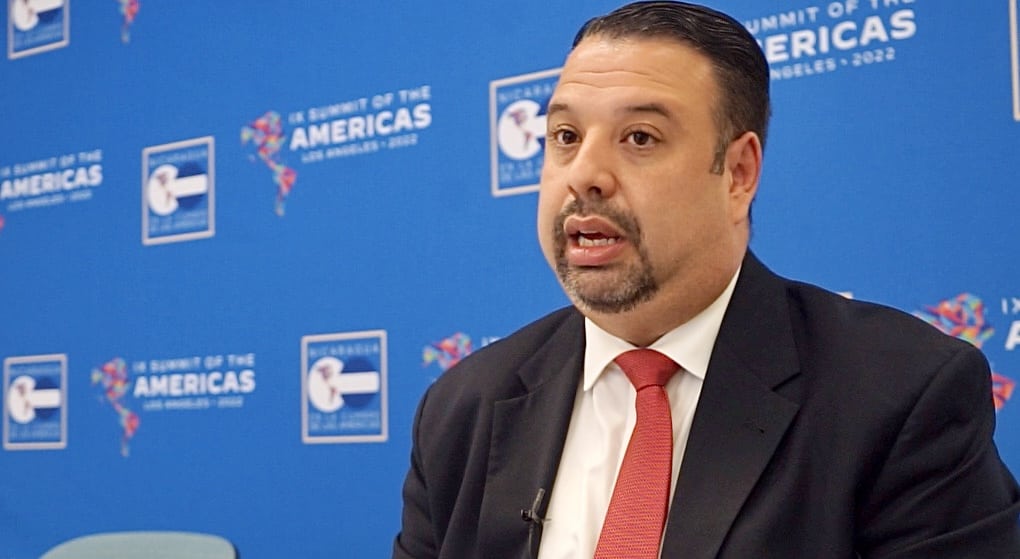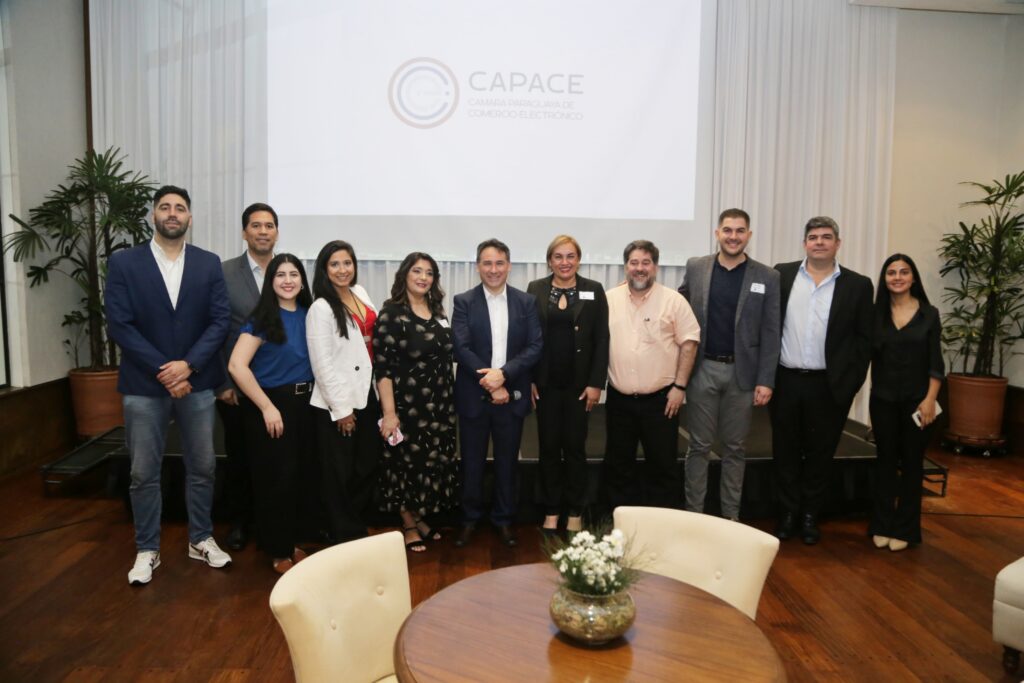The decision of the US president, Joe Biden, to expand the range of action of the presidential decree 13851about Nicaragua, is considered in Washington as “a very positive decision”, since this amendment sends “a strong message” to the regime of Daniel Ortega and Rosario Murillo. “USA The US will continue to support the Nicaraguan people and demand the immediate release of political prisoners.”
For him Wilson Center Senior Advisor and National Security and Foreign Affairs Expert, Eddy Acevedo, the amendment “allows sanctions to other sectors of the economy”. So now the Biden administration can “prohibit new US investments in certain identified sectors in Nicaragua and also prohibit the importation of certain products of Nicaraguan origin.”
These types of sanctions are never intended to affect the Nicaraguan people. “It is wanted punish Ortega, his colleagues, his relativesthose who are involved with the regime, those who are helping it raise funds and doing it this way does not affect the Nicaraguan people,” he emphasized during this interview he gave to the program This week Y CONFIDENTIAL.
However, the migration of Nicaraguans to the US is increasing, so, Acevedo warns, US immigration policy “is going to have to change” at some point.
What is attributed to this measure by the United States Government to amend a decree by President Donald Trump to now impose not only individual sanctions but also sectoral sanctions, aimed at representatives and specific sectors of the Nicaraguan economy?
This new policy of the (Joe) Biden administration against the (Daniel) Ortega regime was a very positive decision, it was a decision that is warning the Ortega regime and sending a very strong message in terms that the United States is going to continue supporting the Nicaraguan people and demanding that the political prisoners be freed immediately… It is a very positive decision that has received a lot of bipartisan support here in Washington. In terms of the decision, as we know, the regime benefits directly from millions of dollars from the sale of gold, this is a strategy that not only Ortega but also for (Nicolás) Maduro, who have done to try to raise funds to continue repressing the people. But I think that the most important thing about the sanctions against gold is the amendment where it allows sanctioning sectors of the economy. This helps prohibit new US investment in certain identified sectors in Nicaragua and also prohibits the importation of certain products of Nicaraguan origin. That to me sends a very strong message to the Ortega regime and also to the private sector, because we know that some in the private sector have been laundering money for Ortega and for Ortega’s family. We have the attention on Nicaragua and if the situation does not improve soon there will be other policies and decisions that we can make.
How do you assess the impact that this measure has had in the first days, because the mining companies, which are mostly Canadian and British, say that they have no relations with the Ortega regime and that they will continue to operate even though the price has fallen? of their shares on the stock market?
We are in the early days of this decision, right now a process is going to begin where the US Government, specifically the Treasury Department, is going to have conversations with those companies to find out what the truth is and what those negotiations are like, those agreements that they have with the (Nicaraguan) government. I think it will be very difficult for these companies to be successful in Nicaragua without having some kind of relationship with the regime. The (US government) is going to give the companies a chance to leave Nicaragua if necessary, if they don’t they can be sanctioned as well.
What is the possibility that this type of policy will spread to other industries, because the United States is the main market, the main trading partner of Nicaragua?
We have already made some decisions, you will remember that a couple of months ago the Biden administration made the decision that it was no longer going to buy sugar from Nicaragua, so it is an idea that they have put on the table. Another idea, which I have exposed publicly, is also to stop buying beef from Nicaragua, which is another sector that the Ortega regime controls and a sector that is directly involved with the US. So this is a very strong message. to the regime, there is no sector in the Administration that is going to pay attention. I think now we have to figure out how we are going to move forward and if the repression continues, and if some in the private sector continue to help this regime that is brutal and criminal, there are going to be consequences.
This Thursday, for the first time, Daniel Ortega spoke of the massive exodus of Nicaraguans abroad, but he blamed the United States and the sanctions for this migration. How is this message read in the United States Congress and in the White House?
This is an excuse that many have said in this region. Ortega and Maduro continue with this excuse, but nobody really believes them anymore, there is no legitimacy about these excuses. We all know that the reason for the migration of Venezuelans out of Venezuela, like the Nicaraguans out of Nicaragua, like the Cubans who are leaving Cuba, is because the regimes are violating their human rights, they are taking away their freedoms and that. it is the real reason for the migration that we are seeing in the region.
But could this new policy that the Biden administration is promoting of, for example, restricting Nicaraguan imports from some industries also have an impact on employment in Nicaragua and on the lives of Nicaraguans?
The statements made by the Administration a couple of days ago was that when they make these decisions they want to see that they are not affecting the lives of the people of Nicaragua. That is the number one priority in any decision that is made in terms of Nicaragua. They want to sanction Ortega, his colleagues, his relatives, those who are involved with the regime, those who are helping him raise funds, and doing it this way does not affect the Nicaraguan people.
How do you evaluate the immigration policy of the United States at this time towards the Nicaraguans who are being massively detained at the border, who are surrendering? Is there an opening policy or is that going to change?
The policy is going to have to change. For a long time in the United States they thought that those who came to the border were Mexicans, later that changed and they were people from the northern triangle and the idea was to invest resources so that people from Guatemala, El Salvador and Honduras would stay in their country for economic reasons. Now we see that immigrants from Venezuela, Cuba, Nicaragua and Haiti have increased at the border, and the reasons why these people are coming are more political reasons. So now we have to change how the United States sees the situations in Latin America. I, like other of my colleagues, have tried to focus the administration, which, as you know, is very focused on what is happening in Ukraine, China, Russia; we want more attention to Latin America because we think that there we can help to sustain these numbers and find a way to help immigrants within the region.
But in what direction does this change or this debate about migrants from Nicaragua, Cuba and Venezuela point? Could the United States offer a special or temporary care policy for these migrants, or are policies of rejection going to be re-established?
I think it is too early to see exactly what the policy will be for the future. At the Summit of the Americas there was the famous declaration of Los Angeles in terms of immigrants and they are trying to find a way for the United States to work with the different countries of the region on this issue. So, I think it’s a little early to see exactly what those different policies are going to be, but it’s definitely going to be something that we’re going to continue to touch on here in Washington and also with the new elections that are going to take place in November, possibly there are going to be new ones. faces in Congress, I am sure that this is going to be an issue that many are going to want to find solutions to.
















